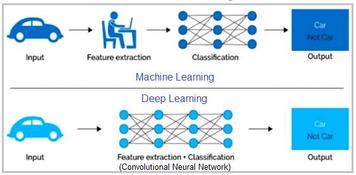Machine Learning: Advantages and Disadvantages
Advertisement
This article explores the benefits and drawbacks of Machine Learning.
Typically, when we write code for computing or embedded systems, the system executes precisely what’s been programmed. It doesn’t make independent decisions or perform extra, unplanned tasks. Machine learning systems are different. They learn from previous datasets, as well as new data, and can perform tasks that weren’t explicitly programmed. This type of system is what we call machine learning.

Machine Learning uses advanced, algorithm-based models to make decisions based on what it learns. These models often include predictive models and neural networks. These models develop decision trees that help the system make new decisions.
Now that we’ve briefly defined machine learning, let’s dive into its advantages and disadvantages.
Advantages of Machine Learning
Here are some of the key advantages of Machine Learning:
-
Wide Range of Applications: Machine Learning is used in various sectors, including banking, finance, healthcare, retail, publishing, social media, robot locomotion, and game playing.
-
Targeted Advertising: Companies like Google and Facebook use it to deliver relevant advertisements to users based on their past search behavior.
-
Handles Complex Data: Machine Learning can effectively handle multi-dimensional and multi-variety data in dynamic or uncertain environments.
-
Time and Resource Efficiency: It allows for reduced time cycles and more efficient utilization of resources.
-
Continuous Quality Improvement: Tools are available thanks to machine learning to provide continuous quality improvement in large and complex process environments.
-
Increased Usability: Source programs like Rapidminer enhance the usability of algorithms for various applications.
Disadvantages of Machine Learning
Here are some of the challenges and disadvantages of Machine Learning:
-
Data Acquisition: Acquiring relevant data is a significant challenge. The data often needs processing specific to the chosen algorithms before it can be used as input. This pre-processing has a big impact on the results.
-
Result Interpretation: Interpreting the results of machine learning algorithms to determine their effectiveness is also a major challenge.
-
Technique Selection: Deciding which action to take and when requires trying various machine learning techniques.
-
Ongoing Research: The next level of machine learning technology is still being researched.
Advertisement
 RF
RF

